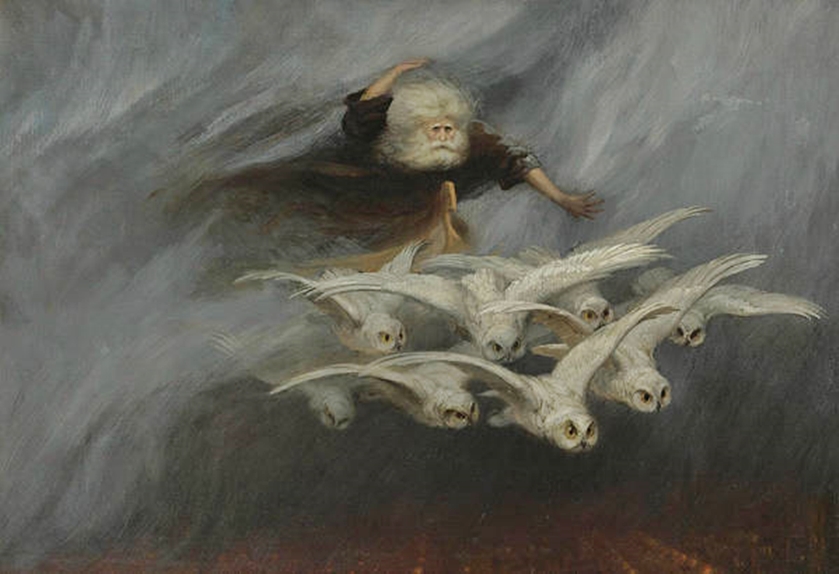Vladimir Putin pushed the United States and European leaders on the defensive, forced them to sit at the table with him, soliciting phone calls and meetings. Many commentators treat this situation as a symptom of Russia’s strength and the weakness of the West. Nothing could be more wrong.
This situation is, in fact, the evidence of Russia’s serious weakness. It shows that in the thirty years since the collapse of the USSR, Moscow has found no other way to exist in the world than to rebuild what has ceased to exist. It also found no alternative to establish relations with its European neighbors to domination.
Russia does not want to see that the essence of its defeat towards Ukraine, but also towards our region, is not US policy, but the reluctance of these countries towards the Russian authoritarian leadership. And the more oppressive this leadership becomes, the greater this reluctance becomes.
Paradoxically, Belarus is no exception. More than two decades of Western diplomacy did not do as much to build a national identity of Belarusians separate from Russia as did the last two years of Moscow’s support for the hated satrap.
It is worth noting that Western negotiators should not forget about it when arguments about “security guarantees for Russia” and about “NATO moving eastwards” appear on the table. That they would remember the simple truth that if Ukraine preferred Russia, if the countries of Central Europe wanted military alliances with the Kremlin, then NATO would not move anywhere.
And yet, Ukraine seeks rapprochement with the US, and not with Russia. And the moment when the Russian authorities finally ask themselves the question “Why is this actually happening?”, it will be a turning point in the Kremlin’s policy.
Equally out of place are the analogies to the year 1938, which are prevailing in various statements. At that time, Germany was the strongest economy in Europe. Russia is only fifth today, and its relative economic strength is getting smaller every year.
In addition, the war with Ukraine may bring only losses to Russia. And it is not only about sanctions, but about the fact that such aggression will distance Ukraine even further from Russia, and that next to Ukrainians, not the Americans, but the citizens of Russia, will die.
Moreover, on the territories conquered by force, no prosperity can be built nor any advantages achieved. On the contrary, their maintenance is very expensive, which is clearly shown by considerable expenses on the so-called Lugansk and Donetsk People’s Republics.
Finally, Russia mobilizes and unites the West with its policy. Yes, the West has its problems, which Russian aggression does not solve, but neither does it make them worse. Various US-British-EU ances were relegated to the background. Western diplomacy is working together on sanctions and consulting regularly, Sweden and Finland talk about joining NATO, and President Joe Biden about more soldiers on the eastern flank.
For many, the attitude of Germany is a disappointment. Nevertheless, even here we can see the growing pressure of public opinion to change the course in this country. The new German government is undergoing an accelerated course of realignment in relations with Russia (similar to what Angela Merkel went through a few years ago). In a word, so far, this crisis has been built by the West, not destroyed.
So much for the strength of Russia and the weakness of the West. Finally, a typical question: where is Poland in all this? With all the seriousness of the situation, paradoxically, the Polish government has become a beneficiary of the anti-Russian mobilization of the USA and NATO. Poland was among the consulted NATO countries. And President Biden, by announcing the strengthening of the eastern flank of the Alliance, is implementing the agenda put forward by our country.
These successes, however, are not due to the policy of the current Law and Justice (PiS) government. The PiS party is reaping the fruits of over two decades of efforts by all its predecessors to make Poland part of the West.
These benefits should not, however, lull the government to vigilance. For while this bad situation may be temporarily advantageous politically, it does not change the three strategic truths that emerge from this confrontation.
First, Russia is dangerous and disregarding this fact may end badly for us. Secondly, Germany’s weakness (its fear of taking the lead) is more dangerous to us than its strength. And finally, the most important thing: we can do very little on our own. Were it not for NATO or EU membership, we would be where Ukraine is today.
So instead of shouting success, the Polish government should finally take these three truths to heart. It must stop thoughtlessly wasting the resource of our belonging to the West. A resource that we have worked together for so many years to have at our disposal, and which Poland really needs today – perhaps more than ever before.
The article was originally published in Polish at: https://liberte.pl/o-sile-rosji-slabosci-zachodu-oraz-skutecznosci-polskiego-rzadu/
Written by: Katarzyna Pelczynska-Nalecz – a Polish sociologist and political scientist specializing in international politics. For years, she has been associated with the Center for Eastern Studies. She was the Undersecretary of State in the Ministry of Foreign Affairs (2012-14) and the Polish Ambassador to the Russian Federation (2014-16). After leaving the diplomatic service, she took the position of the director of the Open Europe program of the Stefan Batory Foundation, and then the director of the forumIdei think tank. Currently, she is the director of the Institute of Strategie 2050
Translated by Olga Łabendowicz



